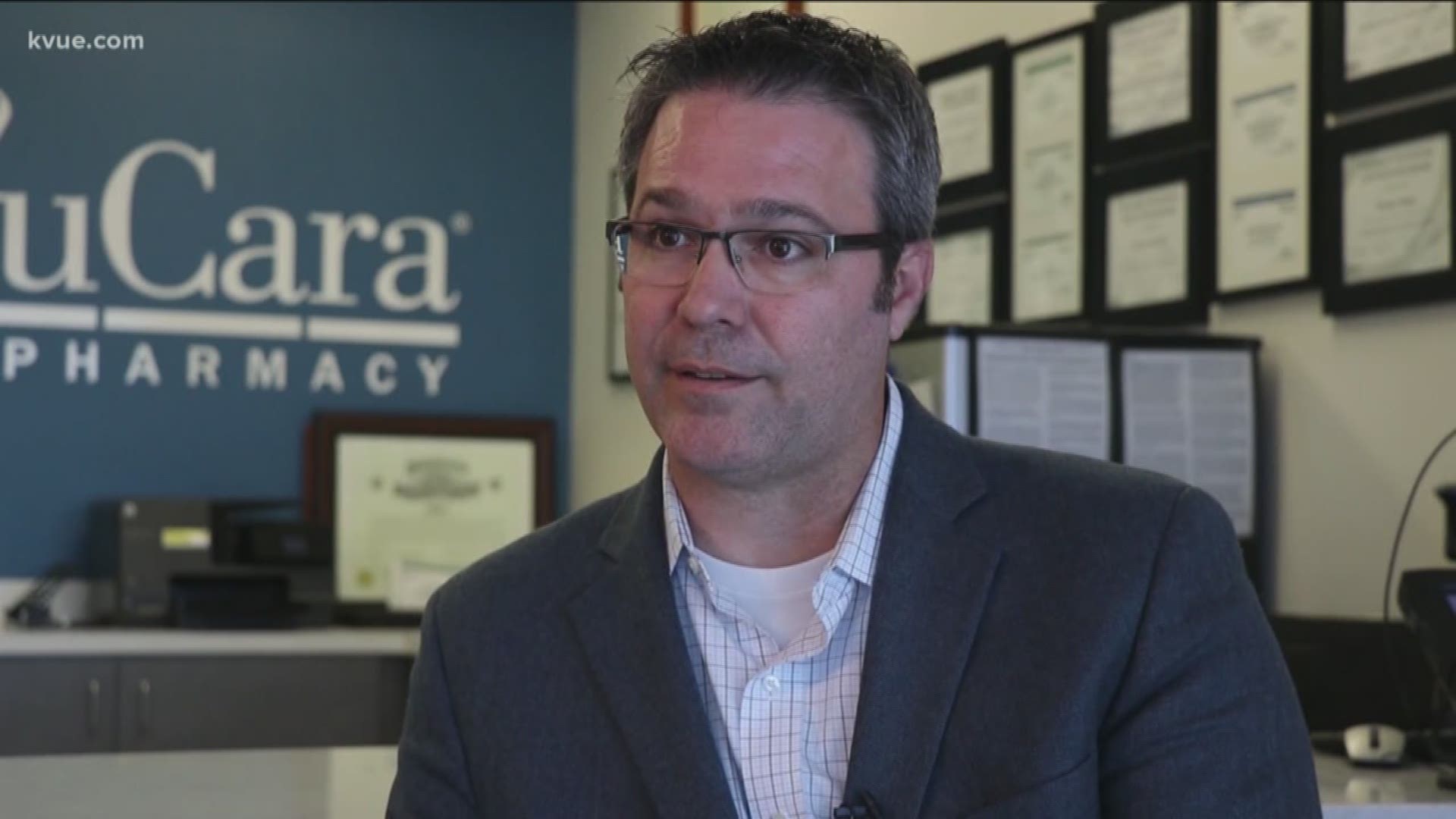AUSTIN, Texas — “The reason I contacted you is that I wanted you to know that compounding pharmacy, good community compounding pharmacy still exists,” said Daniel Dougharty, business developer for NuCara Pharmacy Compounding IV Services in Austin.
Dougharty called the KUVE Defenders after stories exposing compounding pharmacy failures left two women with lifelong injuries.
Compounding pharmacies are pharmacies that mix their own drugs.
NuCara is a sterile and non-sterile compounding agency. It has a room specifically for mixing sterile drugs, which are drugs administered to sensitive areas, like eye drops, through nebulizers and shots.
The rest of the pharmacy is for mixing non-sterile drugs like pills and certain cremes.
It’s all done with a computer software to make sure techs mix the right formula.
“Everything is being recorded and documented,” said Dougharty. “They scan the bottle of each agent to make sure that what they’re weighing out is scanned and verified through that software system. When they weigh out that compound, it prints that information out and it goes with that particular agent … It gets printed out and it gets put with the formulation guide. [A pharmacist] can check each ingredient and make sure the accurate amount was mixed at each step. As the technician goes through that process, that allows the pharmacist go back and check their work.”
Dougharty says pharmacists check each prescription.
“Just like commercial and retail, it’s all human fallacy. Everybody makes mistakes. Something can get missed, but if you use the system put in place then the risk is going to be very low,” said Dougharty.
When something does go wrong, pharmacies must alert the patient and tell the Texas State Board of Pharmacy within 24 hours.
The tailored drugs are not FDA-approved. However, Dougharty says the ingredients are regulated by FDA.
“They’ve been put under rigorous testing. They’ve validated the process,” said Dougharty.
Besides FDA and Texas State Board of Pharmacy regulations, the U.S. Pharmacopoeia develops standards for regulators to follow.
Accredited compounding pharmacies get inspected by not only state and federal regulators, but also the accreditation agency.
The FDA issued guidance for the compounding pharmacy industry in a report available online. The USP compounding standards can be found on the USP website.
After this story was published, FDA emailed this response, "The role of the FDA and it’s compounding program is to protect patients from unsafe, ineffective and poor-quality compounded drugs, while preserving access to compounded drugs for patients for whom an FDA-approved drug is not medically appropriate. Although compounded drugs can serve an important need for some patients, compounded drugs are not FDA-approved. This means the FDA does not conduct premarket review for their safety, effectiveness or quality.
We understand “formulation studies for drug compounds” to be referring to studies that are conducted during the development of a compounded drug. The FDA does not review compounded drugs and does not generally review studies that are conducted in their development.
There can be health risks associated with compounded drugs. For example, compounded drugs made using poor quality compounding practices may be sub- or super potent, contaminated, or otherwise adulterated. Additional health risks include the possibility that patients will use ineffective compounded drugs instead of FDA-approved drugs that have been shown to be safe and effective."
If you have a story idea for the Defenders, email us defenders@kvue.com
Follow Erica Proffer on Twitter @ericaproffer, Facebook @ericaprofferjournalist, and Instagram@ericaprofferjournalist
PEOPLE ARE ALSO READING:

